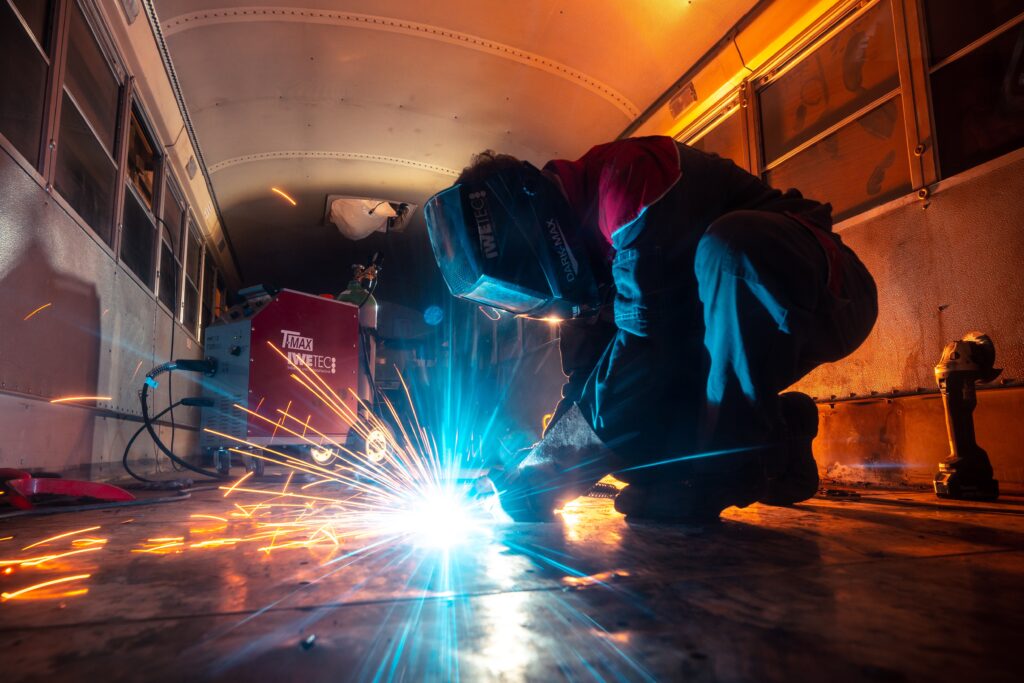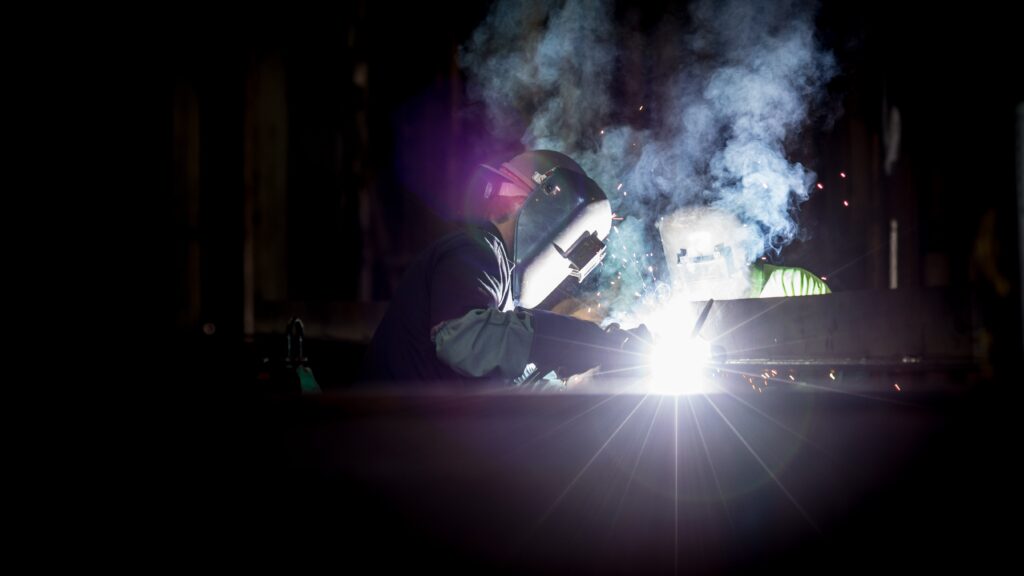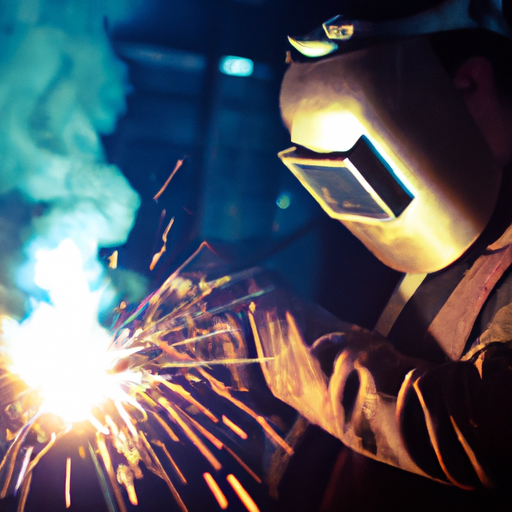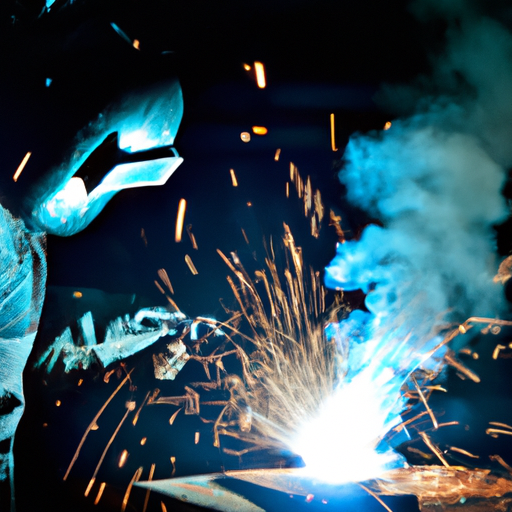Curious about the pros and cons of becoming a welder? Look no further! In this article, we will explore the advantages and disadvantages of pursuing a career in welding. From the potential for high earning to the physical demands of the job, we’ll cover it all. So, whether you’re considering a career change or simply interested in learning more about this skilled trade, read on to discover the ins and outs of being a welder.
High Demand for Welders
Presence of jobs in various industries
If you’re considering a career as a welder, you’ll be pleased to know that there is a high demand for skilled welders in various industries. From construction to manufacturing, automotive to aerospace, welding is a vital skill needed in today’s world. The construction industry alone accounts for a significant portion of welding jobs, with the need for welders in infrastructure projects like bridges, pipelines, and buildings.
Rising need for expert welders
As technology advances and industries evolve, the need for expert welders continues to rise. With the increasing complexity of projects, there is a growing demand for welders who possess advanced welding techniques and specialized skills. This means that by investing in your welding career, you’ll be positioning yourself in a field where your expertise will be sought after and highly valued.
Global demand for skilled welders
It’s not just the local market that is in need of welders; there is a global demand for skilled welding professionals as well. Many countries around the world are experiencing rapid industrialization and infrastructural growth, leading to an increased need for welders. This means that your skills as a welder can take you far beyond your local community, presenting you with opportunities to work in different countries and cultures.
Opportunities for Career Advancement
Potential for upward mobility
One of the great advantages of a career in welding is the potential for upward mobility. With dedication, hard work, and a commitment to continuous learning, you can advance from an entry-level position to a supervisory role or even a welding inspector. This upward mobility allows you to take on more responsibilities, expand your horizons, and increase your earning potential.
Variety of career paths
Another benefit of becoming a welder is the wide range of career paths available to you. Welders can specialize in various areas, such as structural welding, pipe welding, or underwater welding. You can choose to work in industries like construction, manufacturing, or even pursue a career in the arts as a sculptor or metal artist. The versatility of the welding profession means that you can tailor your career to match your interests and passions.
Opportunities for skills development and specialization
Welding is not limited to holding a torch and joining pieces of metal. There are numerous advanced welding techniques and technologies that you can learn and specialize in throughout your career. From robotic welding to laser welding, you can develop your skills in cutting-edge techniques that will make you highly sought after in the industry. These opportunities for skills development and specialization ensure that your work as a welder will always be engaging and challenging.

Potential for High Earnings
Constant increase in wages of welders
One of the appealing aspects of a career in welding is the constant increase in wages. As experienced welders retire and demand for skilled welders continues to rise, wages have been steadily increasing. This means that you have the potential to earn a good income right from the start of your welding career and continue to see pay raises as you gain more experience and expertise.
Availability of high-paying welding jobs
In addition to the rising wages, there are also high-paying welding jobs available in certain industries. Industries like oil and gas, nuclear power, and shipbuilding often require welders for projects with higher levels of complexity and risk. These specialized welding jobs come with higher compensation due to the demand for specific skills and the need for precision and expertise.
Impact of experience and expertise on welders’ income
Your income as a welder is not solely based on your years of experience but also on the level of expertise you possess. As you gain more experience and develop your skills, you can take on more challenging and high-profile projects, which often come with higher pay. Additionally, certifications such as Certified Welding Inspector (CWI) or Certified Welding Educator (CWE) can open doors to higher-paying positions and opportunities for advancement.
Flexibility and Variety in Work Environment
Opportunities to work in various locations
If the idea of being confined to a cubicle or office doesn’t appeal to you, then a career in welding could be the perfect fit. Welders have the opportunity to work in various locations, from construction sites to manufacturing facilities, and even underwater for those interested in underwater welding. This variety in work environments keeps the job exciting and allows you to explore different places and industries.
Variety in job tasks
As a welder, you won’t be stuck performing the same repetitive task day in and day out. Welding involves a variety of job tasks, including cutting, joining, and fabricating metal pieces. Each project brings its own unique challenges and requirements, ensuring that your work as a welder remains interesting and keeps you engaged.
Autonomy and independence in the role of a welder
Another advantage of being a welder is the level of autonomy and independence you have in your role. While you may have supervisors or project managers to report to, much of the actual welding work is done independently. This level of independence allows you to take ownership of your projects, make decisions, and work at your own pace within the project deadlines.

Physical Exercise Involved in Welding
Physical strength required
welding is a physically demanding job that requires strength and stamina. You may need to lift heavy metal pieces, operate welding equipment, and work in awkward positions for extended periods. This physical aspect of welding can be seen as a benefit for those who enjoy physical exercise and working with their hands.
Development of fine motor skills
In addition to physical strength, welding also involves the development of fine motor skills. The precise control required to manipulate the welding torch and create clean, precise welds requires a high level of dexterity. Over time, the repetitive movements involved in welding can significantly improve your hand-eye coordination and fine motor skills.
Health benefits from active work
Engaging in physically demanding work, such as welding, can have positive health benefits. The active nature of welding keeps you on your feet and moving, which can contribute to improved cardiovascular health and overall physical fitness. Additionally, the physical exertion involved in welding can help burn calories and maintain a healthy weight.
Higher Risk of Workplace Injuries
Common forms of injuries reported by welders
While welding offers many advantages, it’s essential to acknowledge that there is a higher risk of workplace injuries compared to some other professions. Common injuries reported by welders include burns, eye injuries from welding arcs, exposure to toxic fumes, and musculoskeletal injuries from repetitive movements or awkward positions. Proper safety precautions, including wearing appropriate personal protective equipment and following safety protocols, are crucial in minimizing the risk of injuries.
Environmental hazards faced by welders
Welders often work in environments with various hazards. Welding fumes, which can contain harmful substances such as manganese and lead, can pose health risks if inhaled over an extended period. Additionally, working in confined spaces, at heights, or around heavy machinery adds to the potential risks faced by welders. It’s important for welders to be aware of these environmental hazards and take necessary precautions to protect their health and safety.
Long-term health effects of welding
In addition to immediate workplace injuries, long-term health effects can also be a consideration for welders. Prolonged exposure to welding fumes and other hazardous substances may increase the risk of respiratory problems, neurological disorders, and certain types of cancer. It is crucial for welders to prioritize their health and take proactive measures to reduce exposure to harmful substances.

Stress Levels in Welding Jobs
Time pressure in welding
Welding projects often come with strict deadlines, which can create time pressure and stress. Meeting project deadlines requires efficient time management and the ability to work under pressure without compromising the quality of the welds. The ability to handle time pressure effectively is an important skill for welders to develop.
High expectations and precision required
As a welder, you’ll be expected to deliver work of the highest quality with utmost precision. Welding involves following detailed plans and specifications, ensuring that the welds are strong and durable. Meeting these high expectations and maintaining precision throughout the welding process can be mentally demanding and add to the stress levels of the job.
Stressful work environment
Depending on the industry and projects you work on, the welding profession can occasionally be stressful. Work environments can be noisy, hot, and physically demanding. Dealing with tight spaces, working at heights, or in extreme weather conditions can add to the stress levels experienced by welders. However, proper training, coping mechanisms, and an understanding of stress management techniques can help mitigate these stressors.
Uncertainty of Job Security
Economic factors affecting job security
Job security can be a concern in any industry, and welding is no exception. Economic factors, such as industry fluctuations and recessions, can impact the demand for welders. During economic downturns, construction projects may be put on hold, leading to fewer job opportunities for welders. However, it’s important to remember that welding skills are transferable across industries, and diversifying your skills and staying updated with new technologies can increase your employability and job security.
Impact of automation and technology
Advancements in automation and technology have the potential to impact the job security of welders. Robotic welding systems are becoming increasingly prevalent in industries like manufacturing and automotive, reducing the need for manual welding. However, automation also brings about new opportunities for welders to work alongside robots, programming and maintaining the automated systems. Adapting to new technologies and acquiring skills in the field of robotics can help future-proof your career as a welder.
Diversity of career options
While job security may have its uncertainties, the welding profession offers a diverse range of career options. With the ability to specialize in different welding techniques and industries, you can adapt and explore various avenues throughout your career. By continuously expanding your skill set and staying updated with industry trends, you can navigate through changes in the job market and find new opportunities for growth and stability.

Cost of Training and Certification
Financial investment in education and training
Becoming a skilled welder requires investing in education and training. Welding programs, whether pursued through technical schools, community colleges, or apprenticeships, come with associated costs such as tuition fees and purchasing welding equipment. While this initial financial investment can be significant, it is important to view it as a long-term investment in your future career and earning potential.
Time commitment for learning and mastering welding skills
In addition to the financial investment, becoming a proficient welder requires a significant time commitment. Welding skills are not acquired overnight but rather through years of practice, training, and experience. Learning the different welding techniques, mastering welding positions, and gaining hands-on experience all take time and dedication. However, for those passionate about welding, the time commitment is often seen as a worthwhile investment in a fulfilling career.
Requirement for continuous learning and updating of skills
The field of welding is constantly evolving, with new technologies, techniques, and safety practices being introduced regularly. To stay competitive and relevant in the industry, welders must embrace a mindset of continuous learning and skills development. This may involve attending workshops, seminars, or pursuing additional certifications to stay updated with the latest advancements in the field. While it requires effort and dedication, keeping your skills up to date ensures that you remain in demand and sets you on a path for long-term success.
Conclusion
Weighing the pros and cons, a career as a welder offers numerous opportunities for those who are passionate about working with metal and enjoy the challenges of a physically and mentally demanding profession. The high demand for welders, potential for career advancement, and potential for high earnings make welding an appealing choice for many. However, it’s essential to carefully consider the risks associated with workplace injuries, stress levels, and the job security landscape. By taking the right safety precautions, managing stress effectively, and remaining adaptable and continuously learning, aspiring welders can navigate through the challenges and excel in this rewarding field. The future of the welding industry holds great promise, with advancements in technology and increasing global demand, ensuring plenty of opportunities for skilled welders for years to come.

